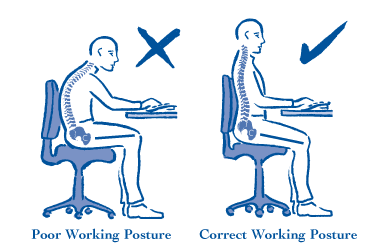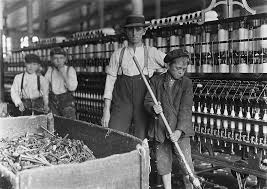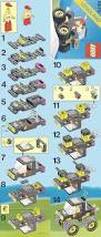So it's now Lent. It may not be relevant to you, but you know about it, the 40 days when some of us give up something we like.
| It could be Chocolate, cakes or alcohol, whatever you decide, a bit like dry January just longer. We're now encouraged to give up bad habits & try to do something positive during Lent. Get rid of some of the things we no longer use, stop spending money on wasteful things, generally try to be nicer to everyone. So how about using this time to stop some of those bad habits at work? |
We see lots of new and experienced people on our courses. Sometimes the people new to composites do better at certain tasks, because they haven't developed any bad habits! We all do it; 'shortcuts', 'time saving', incorrect tools, laziness or just being mistaught in the first place, there are too many reasons to count.
| Some things are really easy to correct. I know I slump at my desk and that it's bad for me. I just need to remember to sit straight. In theory it's an easy change. It will improve my health & make me feel better. So if there are things you do which are bad for your health, the products you make or the tools you use, now is a good time to try and break those habits. |
Probably a good place to start is to ask your colleagues. They would have noticed what you do & in most cases will tell you gleefully all of your mistakes. Please be warned though, don't ask & then get upset! Just explain it's a two way process & you'll be pointing out some of theirs next.
Wear the correct PPE for the task Wearing Gloves, Safety specs and Coveralls when needed, will protect you which is great. They can also help protect the parts you make. Our skin produces oils which keep it healthy. Gloves might make laminating tricky sometimes, but introducing oils or barrier creams into laminated parts is a terrible idea and is only good for de-lamination. Acetone, release agents & other chemicals will go through cloth footwear if you spill it so don't forget your feet! | If you're in an environment where carbon or glass dust is an issue you might be interested in our Composites UK seminar. |
Dust from processing composites will build up over time making floors slippery, potentially causing electrical shorts (if its carbon dust) and causing potential health hazards.
Materials must be disposed of in the correct method (cured & uncured waste for example) if you're making parts this is part of your job! YOU are responsible for YOUR work area. This is especially important in a shared environment.
Materials must be disposed of in the correct method (cured & uncured waste for example) if you're making parts this is part of your job! YOU are responsible for YOUR work area. This is especially important in a shared environment.
Organise your workplace The biggest issue we have on courses is to encourage people to keep work areas tidy. If your bench is a mess you'll have no idea what foreign bodies you've just laminated into your part, can't count your backing papers if you need to & can't find which ply you're on. I'm just as guilty in the office with piles of paper on my desk. |
It's hard to wipe down benches, or notice mistakes if you work in a mess. Sometimes working in chaos makes it difficult to know what you've done and what's left. Avoiding accidents with knives, trips, cuts or falls is much easier in a tidy space.
Somebody here (mention no names) always works in a hurry & has a habit of not sliding snap off blades back into knives. At least with a tidy work space this is easy to spot (& rectify). If you want to make good parts you need the space to work & this means being tidy & putting tools and equipment back in the right place for the next person.
Somebody here (mention no names) always works in a hurry & has a habit of not sliding snap off blades back into knives. At least with a tidy work space this is easy to spot (& rectify). If you want to make good parts you need the space to work & this means being tidy & putting tools and equipment back in the right place for the next person.
Follow the process
|
1. To provide consistency and accountability
How do you know the remaining work life of a pre-preg if you don't log it's freezer time/out time? Who has done what & when?
2. To make the parts suitable for end use
Someone has taken the time to ensure the part is suitable for it's end use. Follow the instructions to make sure it is. How do you know parts will behave the same way if they were made slightly differently?
3. To make the most of materials and consumables
Wasting a 'bit of' a bucket of resin, or not getting the most out of a piece of carbon doesn't seem a problem on one part, but multiply it over a year & a whole workforce and it's expensive and environmentally wasteful.
4. Make the most of YOUR time
If somebody has worked out the most time efficient method to do something following the process properly will save you time, effort & brain ache!
So see what you can do to make a positive improvement at work. We're all trying here too.








 RSS Feed
RSS Feed







